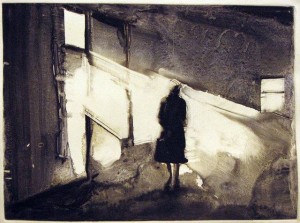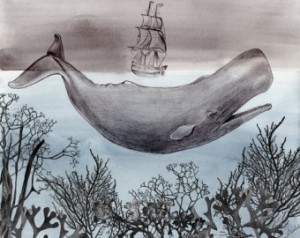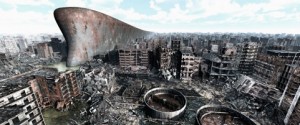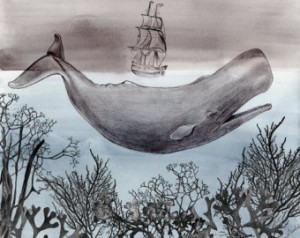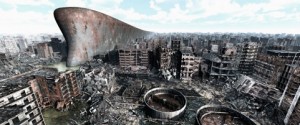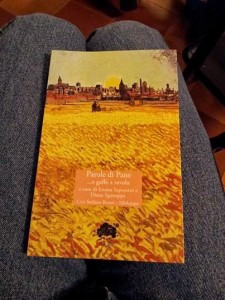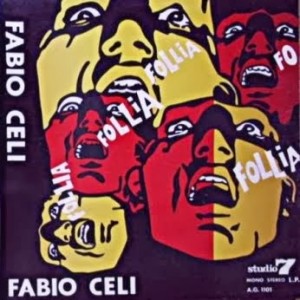Incontrai di recente un amico e conversando in un Bar, sopraggiunse un suo conoscente. La conversazione fu lunga e confortevole e sviluppò argomenti informali e privati su aspetti del proprio vivere e su eventi del passato. Il conoscente disse che non aveva rapporti di alcun tipo con i propri genitori (viventi) da più di dieci anni. Tralasciando i motivi ed eventuali giudizi sulle vicende che portarono a questa rottura insanabile, io e il mio amico rispondemmo con frasi e argomenti di circostanza deviando verso temi più leggeri, ma fummo avvolti da un senso di stupore e di angoscia prolungato per giorni. In certi casi, se le storie di vita sono state contraddistinte da traumi, litigi e odi e rancori repressi, il distacco è una dolorosa cicatrice. Nei rapporti famigliari e di coppia e anche nelle amicizie, dopo il litigio si ha un inconscio desiderio, meschino e arcigno, di sapere qualcosa di chi un tempo fu caro. La ipocrita curiosità persiste, nello sperare che il fu caro soffra o sia incorso in eventi dolorosi. In questo caso, sebbene la curiosità non fu espressa, comprendemmo di aver ascoltato un distacco funebre con il paradosso che si parlava di viventi. La risposta più semplice è l’odio che genera la fredda potenza dell’orgoglio cosciente e calcolante.
Invece il dubbio più abissale che continuava a girarmi in testa non era tanto l’analisi di un figlio che si comportasse in tale modo, quanto sulle future conseguenze. Vi sono coloro che hanno i genitori anziani e in progressivo peggioramento delle condizioni di salute, dove la vecchiezza si trasforma in vecchiaia: nella strada di ghiaccio del dolore e infine della morte. Alcuni sono orfani dalla tenera età. Di solito la presenza dei genitori è ritenuta scontata, sebbene nel corso dei mesi, comincino di frequente ad apparire piccoli acciacchi, sempre più diffusi e intensi. E se poi loro non appaiono più nella Terra, ognuno ha il pensiero e il dubbio di aver perduto il tempo non condiviso. Gli stessi che frequentano i genitori ogni giorno, nel momento in cui vi è l’evento luttuoso, hanno il rimpianto di non aver detto frasi importanti, vere e sentite. Il senso di inadeguatezza è comune e riflette anche il nostro vivere. La fine dei giorni per gli altri, fa pensare alla nostra dipartita; al tempo già passato e alla costellazione delle occasioni facilmente realizzabili, ma che per pigrizia, superficialità e ignoranza, sono state rinviate in un futuro immaginario.
Alicja Bloch, immagine presa QUI
La scomparsa dei genitori è compresa appieno nei giorni futuri, in cui ognuno si misura con i riti quotidiani delle ricorrenze e delle stagioni. Non avere un contatto con i propri genitori, implica un salto temporale, perché il ruolo di figlio è fermo in un punto del passato o in un cancello della mente, dove noi aspettiamo di entrare per ripetere l’episodio del distacco. Non avendo più rapporti, è come se si fosse già arrivati a una chiusura definitiva, sebbene i “morti” ancora appaiono. Il problema allora sorge nel momento in cui si sa o si viene a sapere che non vi sono più.
Cosa può succedere dopo il lutto definitivo?
Una prima risposta è che tutto il passato si presenta davanti, con tutte le rabbie e i dolori che non possono più essere risolti. In più, forse, appare un senso di vuoto lacerante misto ad impotenza. Vi è il rischio che le strutture depositate negli anni nel costruire la diga della divisione, possano crollare. E a che cosa si va incontro allora?
Tom Bennett , Sleepwalk 20, 2010, Immagine presa QUI
Cosa accade nell’affrontare i morti per la seconda volta ? Cosa accade quando l’incontro è definitivo? Che mancanze avremo a subire?

